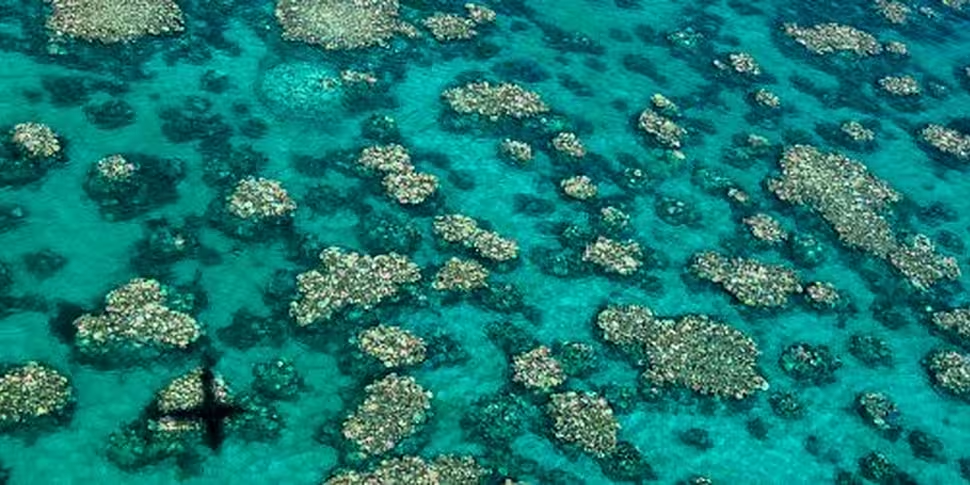Scientists are warning that the window of opportunity to save the Great Barrier Reef is "closing quite rapidly".
The Great Barrier Reef covers a 344,400 km² area in northeastern Australia and is around 2,300 km long.
It is a World Heritage Site and is considered one of the world's natural wonders for its colourful coral and the unique surrounding ecosystems.
However, recent aerial surveys of the region have revealed that two-thirds of Australia's massive reef system has been hit by 'severe' coral bleaching this year.
Bleaching occurs when coral is 'stressed', which is often caused when the water temperature becomes particularly hot. Such abnormal conditions cause the coral to 'expel' tiny and colourful algae known as zooxanthellae.
In favourable conditions, the algae produce food for the coral through photosynthesis. However, in the absence of the algae, coral turns white and 'bleaches'.
Researchers say the latest 'back-to-back' bleaching event stretches for 1,500 km and has left only the southern third of the reef unscathed.
It is the second year in the row the reef has experienced severe bleaching - and that is without the El Niño conditions that influenced the 2016 event.
This year, the middle third of the reef has experienced particularly intense bleaching.

Image: ARC Centre of Excellence for Coral Reef Studies
The surveys were overseen by Prof Terry Hughes and Dr James Kerry of James Cook University in Australia, and Dr Kerry spoke to Sean Moncrieff about their findings.
He said: "A bleached coral isn't necessarily dead.
"If the temperature of the water cools down enough, the coral will actually take [the] coral back in [...] and it will begin to be able to feed itself through the algae."
"There is still a window of opportunity"
Dr Kerry explained that parts of the reef experienced higher than usual temperatures during the recent Australian summer.
"When you get that extended period of heating, that's when you get the stress response," he observed. "If you're talking more long-term, we've been seeing for at least 50 years a global trend of increasing global temperatures."
The Great Barrier Reef is home to many species of fish - such as clownfish, groupers, surgeonfish and trout.
When the coral suffers, it also puts the rest of the reef's complex ecosystem under severe stress.

Common Clownfish in their Magnificent Sea Anemone home on the Great Barrier Reef, Australia. Image: Jan Derk via Wikimedia Commons
"The ecosystem is fairly tightly connected," Dr Kerry told Sean. "The corals are what we call foundation species, so they are used by a lot of other species for food, for shelter. So [that's] fish, and things like shrimp and crabs.
"When you lose the corals - especially the complex ones - you lose a lot of habitat and food. Within months and years you start to see a loss of fish and other creatures on the reef."
Dr Kerry explained that a vast majority of scientists agree that human activity has influenced these rising temperatures.
He said: "Science is telling us that it's overwhelmingly carbon emissions, and the amount of carbon that we're pumping into the atmosphere that's actually driving up those temperatures globally."
Dr Kerry said that while he would not go as far as saying the reef faces extinction just yet, he did warn it is under "quite severe threat" at the moment.
He said: "There is still a window of opportunity, but it is closing quite rapidly for us to start changing the amount of carbon emissions that we're putting into the atmosphere."









